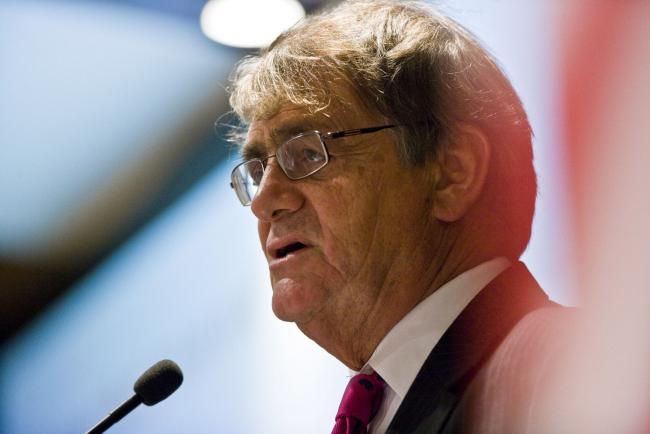(Bloomberg) -- Australia’s central bank will lower interest rates twice more and could adopt a package with the second easing to allow lenders to pass on the reduction in full, Westpac Banking Corp. Chief Economist Bill Evans said.
Evans brought forward his forecast for the next cut to October from November -- saying by then the labor market will have deteriorated sufficiently from Reserve Bank estimates to prompt a move. He added another cut in February that would bring the cash rate to 0.5%.
He cited the Australian dollar providing less support to the economy and the prospect of the Federal Reserve easing among reasons for the change of forecast. The local currency has risen since the RBA’s back-to-back reductions in June and July due to strong commodity prices and the Fed is expected to cut next week.
“Some data releases since May 24 have also highlighted downside risks for demand, wages and the labor market,” he said, referring to Westpac’s last update. “In particular we have been surprised by the response of consumer sentiment to the rate cuts in June/July, having fallen by nearly 5%. Furthermore, our measure of unemployment expectations has also deteriorated markedly.”
The RBA resumed cutting rates after a downward adjustment to its estimate of the unemployment rate needed to fuel inflation to about 4.5% from 5%, and as growth slowed sharply. Governor Philip Lowe has signaled a pause to see how the easing plays out in the economy and hasn’t ruled out further reductions to try to boost hiring and lift inflation; the latter has been running at the bottom or below the RBA’s 2-3% target for several years.
Policy makers have acknowledged that cuts pack less punch as the key rate approaches its lower bound, but have argued that they still provide stimulus by putting more cash into mortgage holders’ pockets and via the currency. Assistant Governor Chris Kent, speaking at a Bloomberg event Tuesday, said the Aussie dollar could actually have appreciated more if not for the recent easing.
Traders are pricing in a better than 75% chance that the RBA will cut rates again by December.
Evans suggested one way to ensure a rate cut from 0.75% to 0.5% is passed on by Australia’s banks is by accompanying it with a package of financial measures. He noted that when the Bank of England cut in 2016 it used a Term Funding Scheme to encourage lenders to pass on the reduction. This allowed them to borrow from the BOE on a secured basis at the new Bank Rate.
